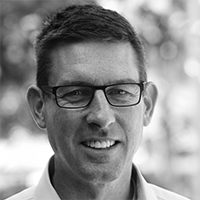|
|

While it’s easy to recognise character—we know it when we see it—it’s famously more difficult to define. Harder still is to describe how character arises. In his recent book, The Second Mountain, David Brooks struggles with the concept, something that he’s been doing since he wrote, The Road to Character in 2015. There he described character only in terms of the individual: “I still believed that character is something you build mostly on your own,” he wrote recently. You find your faults and then, “mustering all your willpower, you make yourself strong in the weakest places. … you do your exercises and you build up your honesty, courage, integrity, and grit.” Now, he supports a different view, namely, that character “is not something you build sitting in a room thinking about the difference between right and wrong and about your own willpower.” Rather than a product of austerity or determination, he sees character as a consequence of the relationships we have with others. “If you want to inculcate character in someone else,” he writes, “teach them how to form commitments … commitments are the school of moral formation. … You surrender to a community or cause, make promises to other people, build a thick jungle of loving attachments, lose yourself in the daily act of serving others as they lose themselves in the daily acts of serving you.”
Camp is as camp does “To look beyond themselves,” said John Jorgenson when I spoke with him at the recent OCA conference. “That’s really the point of growth that camp offers, is that transition stage where you really go from a me-centered experience to a we-centered experience: being able to read others, being able to understand the emotional needs of others, that emotional and social intelligence are the things that camp can give at a very critical time in most kids’ lives.” Spreading the word As Brooks has ultimately come to know, character isn’t a lesson to be learned, rather it’s a way of living. Acquiring values and building character are the things that distinguish camp experiences from any other in a young person’s life. Whether it’s an overnight camp deep in the bush or a coding camp in the heart of a city, camp is about providing space—both physical and mental—to explore how we relate to the world, who we are; it’s where we admire the values that we see expressed in the action of others, and then learn to express them in our own; it’s where we find the kind of life we’d like to lead, and discover communities that share our aspirations. Which, perhaps, is what character is all about. For more ... Important update
Families are now able to navigate across the site what’s available this summer.
The feature includes a filter which families access via a single click toggle button, to bring available programs to the front of the results: 
If you have any questions about how to add programs and sessions, or how best to make use of this new feature, please don’t hesitate to reach out.

Copyright © 2020 Our Kids Media, All rights reserved |
